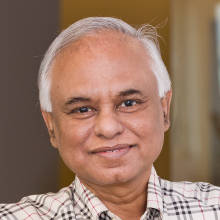“In business we sell to humans, employ humans and we take money from humans—that is, the investors. Understanding humans is core to doing great businesses,” says Kunal Shah, the founder and chairman of FreeCharge. In that sense, he says studying philosophy (he has a bachelor’s degree in the subject) more than an MBA (he dropped out in the second semester) prepared him for business.
FreeCharge started with prepaid phone and bill recharge. It has now evolved into a digital payments platform that competes with segment leader Paytm. In April 2015, Snapdeal bought FreeCharge for about $400 million.
But his was not always a success story. Shah says failure is a journey of learning. “Every successful person has to go through a journey of a hundred slaps. It’s best to get them early.”
Yet a fear of failure and shame training in childhood keeps people from taking risks and trying out new ideas. Shame is a method of training kids, but the problem is, that shame associated with failure continues in later life.
Shah elaborates on the behavioural insights behind FreeCharge and how these insights helped him create a “brag-worthy” proposition. This also allowed a user habit change from offline transactions to online—without having to spend much monies.
Another human factor behind a successful brand is the employees and the ownership they assume. Shah says complete trust and empowerment will ensure your employees take ownership and give their best. “Often they only need someone to believe in them more than they do themselves,” he says.
An interesting example of demonstrating trust is, FreeCharge gave out an Apple Macbook with the offer letter. Shah says this was a small cost for bringing in ethical people. It served as an early litmus test for getting the right people. “When you show trust so early in the game, they come in with a different mindset,” he says.
